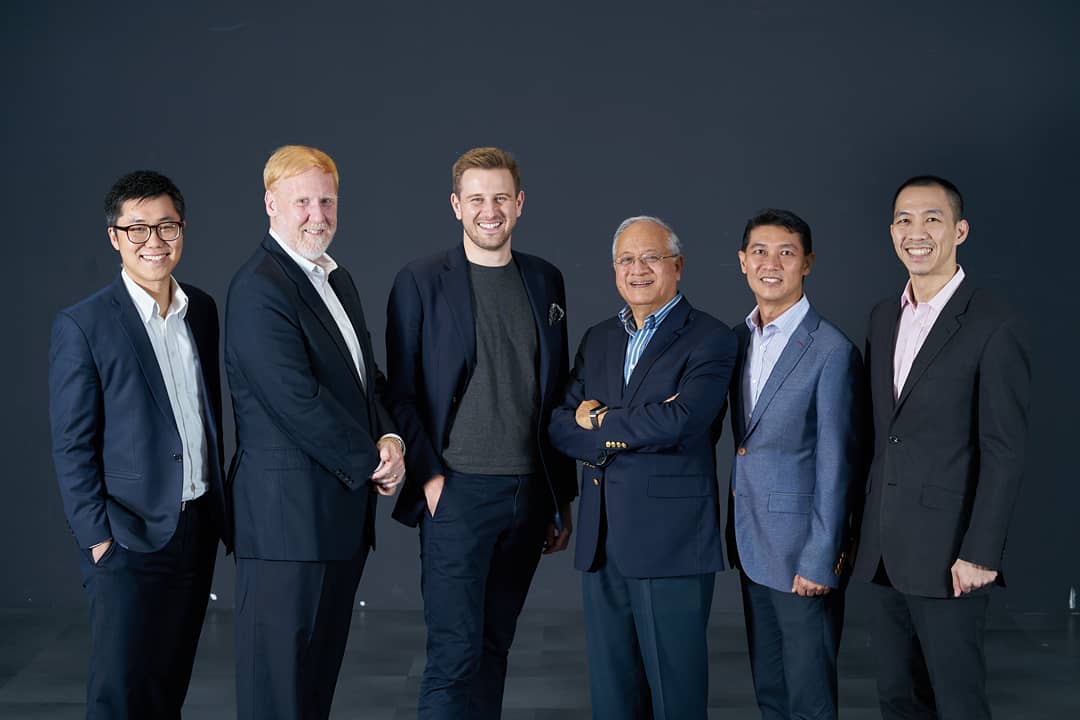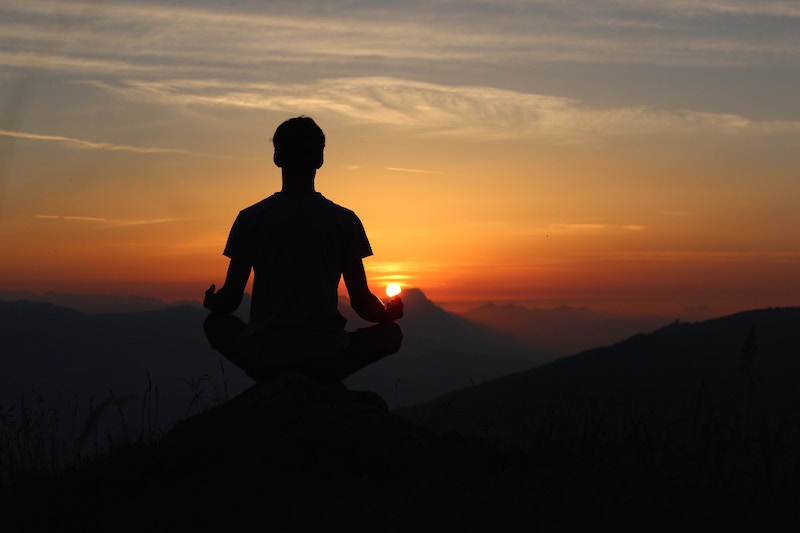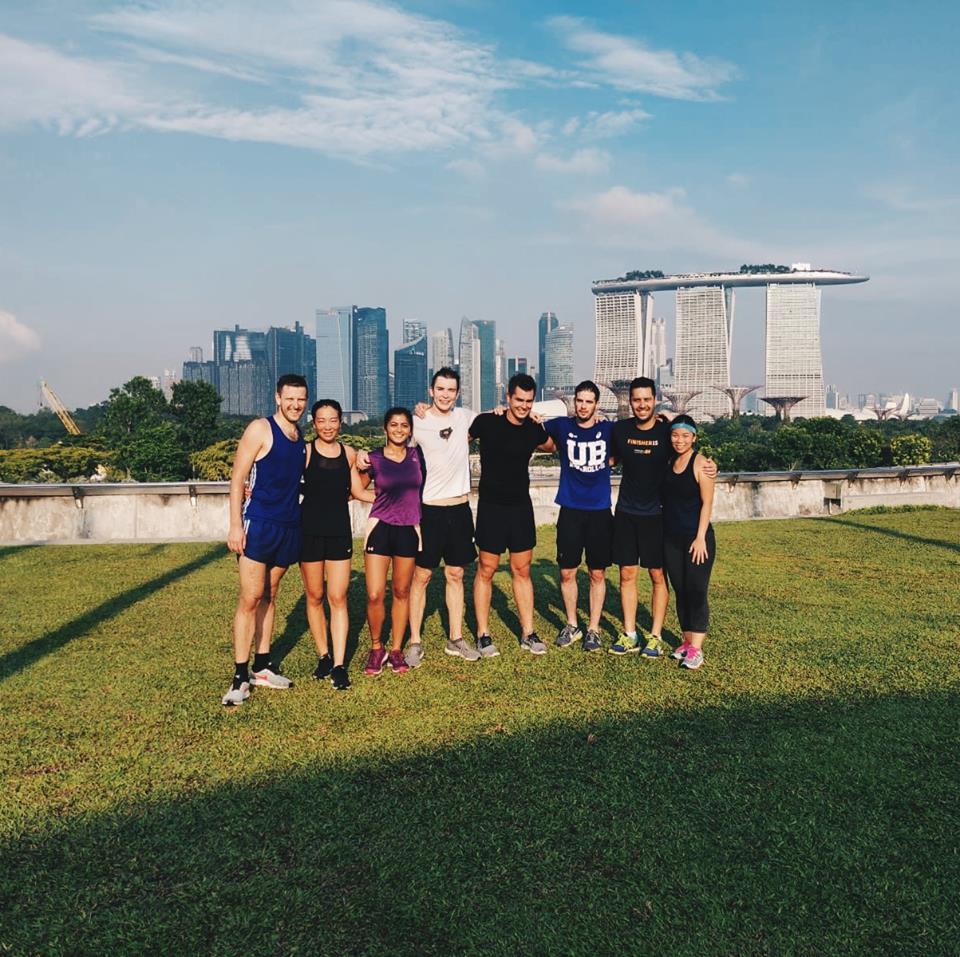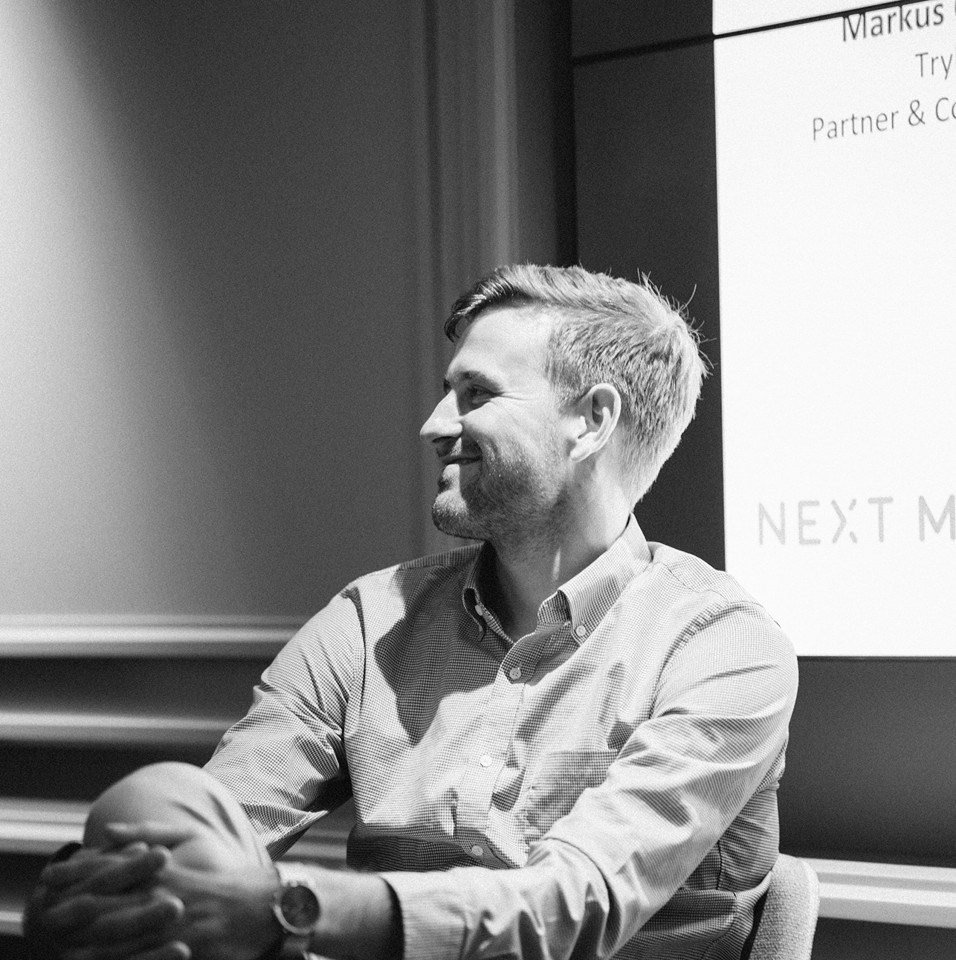What if...my potential employer decides not to hire me, as I've been diagnosed with depression previously?
What if...my investor decides he/she wants a 'refund' if I came clean about my bouts of anxiety earlier this year?
Markus Gnirck holds the poster boy image to modern day 'success'. At 30, he's Partner at tryb - a leading FinTech platform in Singapore investing in and growing early stage financial technology companies in Asia, an endurance athlete, mindfulness practitioner, and a recipient of Forbes Asia 30 under 30 in 2016 - Venture Capital & Finance.
Putting his ego aside, Markus embraces his vulnerabilities and shares with us his journey with a bout of depression & anxiety earlier this year - hoping to inspire the broader investor, startup, technology industries to be more compassionate/human toward one another.
"I do think that all of us face mental and physical challenges. Although we work in different industries and backgrounds, I think there are shared struggles related to fear, etc that we share; things that we try to hide from others."
What is a side of you that not many know about?
I don’t like swimming - I feel like a potato bag floating in water.
Besides being frustrated with my lack of swimming skills, I actually struggled with a bout of depression and anxiety earlier this year.
I would say I’m a generally positive and optimistic person; I’ve been building and investing in companies for the past decade and thoroughly enjoy being in the entrepreneur ecosystems throughout Asia and Europe.
Earlier this year, however, an emptiness started creeping up inside of me. After countless years of high energy exhaustion, numerous projects, and constantly being on the go - my “batteries” started to feel perpetually worn down and the connection between my mind/body seemed off. This inability to bounce back or be my usual upbeat self kicked off a negative cycle of thoughts…
What does a day look like for you?
I don’t really have a specific routine that I repeat daily; it depends largely on travel and meetings. That said, I like the flexibility to move things around rather than being tied down to one schedule - leaving room for some spontaneity and surprises makes life more interesting to me.
My ideal day, however, would be waking up at 645am for a morning workout around Marina Bay (HIIT/ running) before getting to the office for a nice cup of fruits and green tea.
On days where I don’t work out in the morning, I usually do an evening run around Marina Bay before heading back to cook dinner. I usually finish the day with some focused breathing to clear my mind and wind down before sleeping.
On weekends, I can usually be found either cruising around MacRitchie Reservoir or cafe hopping (for work purposes… obviously :p)
Was there anything you feel triggered this negative cycle of thoughts?
I can’t pinpoint an exact moment where it all started; it was just like a dark spot of ink dropped into a pool of water and slowly started working its way through my mind.
While I was we still able to perform well at work and practiced an outwardly healthy lifestyle in terms or diet and exercise, my mind was anything but healthy.
It was actually an eye opening experiment for me; to see how the body could function well despite the mind not being in the right place. As I was a professional track & field athlete, I always believed that physical health was more important than mental health. In other words, I didn’t really know what mental health really meant and oftentimes neglected it.
So, earlier in the year, despite the negative thoughts and doubts accumulating, I neglected to pay any attention to them. My ego told me to get on it with it and to act against anything seemingly negative.
As I’ve found, that might work in the near-term… but leads to a myriad of problems in the long run. In fact, I was not sleeping well for over a year and would wake up feeling drained before the day even started! I must add that it was an added challenge being in the entrepreneurial and startup circle where there’s a common belief that you can only be successful if you are working hard and playing hard.
Thankfully, my body eventually told me enough is enough - I started feeling increasingly drained from meeting people, not wanting to respond or write emails, and not having an appetite to eat things I usually enjoy eating. These were clear signs that made me realise I was going to hit a brick wall at some point; my body was running on one thing and my mind on something else… but I knew they would both come crumbling down at some point. This eventually led me to my decision to take part in a week long meditation retreat.
How did you hear about the retreat and what did you expect going in?
I had a few friends who were travelling through Singapore back to Europe; they told me about a similar 10 day retreat they did in New Zealand. It came at the time where I felt a change was needed so I applied for Vipassana (the name of the retreat) in Hong Kong the next day, and got accepted a day after. It really was one of those ‘right time, right place’ moments.
Frankly, I didn’t do any research on Vipassana and only knew about the 10 day silence part. Ironically, being unaware of the entirety of this 10 day course turned out to be the right decision; I had no expectations going in. I knew that I had to do this for myself and I’m very grateful that I received immense support from my co-founders and family.

What actually took place during the retreat?
Three weeks after I applied and got accepted into the Vipassana course in Hong Kong, I moved into the monastery-style centre on Lantau together with 30 other male meditators.
To summarise it in a few words, think of just having 10 days to focus entirely on your mind and body. No distractions; no talking, no interactions, no technology, and a diet primarily made up of vegetarian food. The time usually spent on those things are spent meditating.
It sounds like a lot, but it’s actually just like acquiring a new skill; it takes practice and isn’t easy! My ego got shattered, the anxiety I had felt was resolved, I managed to relieve the pressure on myself, and started the journey of self-love. I’ve never felt so free and happy.
How is this different from the “high” or happiness you’ve felt after races / physical accomplishments?
Taking part in so many adventure races, there’s definitely the new endorphin and adrenaline rush that comes with each one. I would argue that this happiness and “high” usually comes from a place of physical achievement. Spending 10 days looking inward, however, involves a different kind of challenge, so the happiness and freedom is different as well. It comes from a place of emotional and mental peace.
Cleaning up old “stock” of misery from the subconsciousness, training equanimity, and feeling an unlimited and unconditional sense of compassion for the universe was both fascinating and humbling.
Since coming back, what changes have you noticed?
In the grand scheme of things, I don’t think I’ve changed; I am who I am. Everything is a journey and my experience at Vipassana was just another step on this journey that was meant to happen.
A few observations on how this step might have an impact on future steps, however, are:
My perspective on what matters has changed. Things come and go. Nothing is permanent. That has given me an inner peace to trust myself. It has taught me to focus on the moment rather than setting unattainable goals far away in the future. Being offline for 10 days (and Germany was in the World Cup during those days), you realise that nothing actually happens when you miss seemingly important dates (Germany lost to South Korea, so what). I’m now more in tune with what’s happening around me and able to be at peace knowing that other things will flow from there.
I am better at taking cues related to my body and mind signals. As soon as something seems off, I now take the time to analyse what triggered that feeling and try to resolve it as soon as possible. If I find myself reacting emotionally in conversations or feel confronted with anger/distress, I try to remove myself from the situation and look at it from a third-party angle. Before, I would give in to my emotions.
It has opened up a new channel in conversations and brought more meaning to them. I feel more connected to beings, increasingly compassionate about their standpoints, and have more tolerance and understanding toward the why. I feel more comfortable talking about both my lows and highs; I’ve actually learnt that many people have been or are in similar states.
Of course, I still have my struggles. I’m still trying to get to the point of unconditional compassion in trying to understand certain individuals’ ignorance. This is still really tough.

Has that experience led to starting anything to share what you’ve learnt?
Definitely! Being removed from everything for 10 days and left alone with your mind - the creativity is super high and I had a ton of business ideas during the time. One of the projects I’ve since started is a podcast called Mastering Mind & Body.
I’ve gotten amazingly curious about how others manage to master both the mind and body, which inevitably leads them to live healthy and happy lives. As I’ve had many ongoing conversations with friends and family surrounding that topic, I decided I was going to stream it online and, therefore, started the podcast!
Do you still have low days? What do those look like?
Yes, of course - they are part of life. Thankfully, they don’t feel that low any more… the same way the highs don’t feel as high anymore. It’s a good flow; lows come in situations when deep emotions and sensations come up; ones that I’ve not worked on such as experiences from my childhood.
That said, I’m thankful that I’m now aware of where those emotions stem from. The 10 day retreat was a small step on a long journey to ridding myself of these old miseries, or at least dealing with them. I’m fully aware that I need to continue practising mindfulness. After all, no one learns Mandarin in 10 days, that goes the same for mindfulness as well.
What are some of your coping mechanisms or tools?
Definitely breathing; Breathe in, Breathe out. Breathe in, Breathe out.
Yes, it’s cliche, but it reminds me that whatever happens in those two seconds is a part of the past and I can’t change it.
Extrapolating that helps to lower whatever anxiety and stress I may feel in the moment. As long as I’m staying in the moment and making sure that my mind and body are in the right place, I trust that good will happen.
I run relatively often and try to also practice mindfulness during exercising. I find that I’m able to get my mind to a “clean and empty” state like I did during the 10 day Vipassana. Run, breathe, and be aware of body and mind. This helps whatever stressors or problems seem lighter and leads to a stream of happiness... even after a painful 25km run 😊.
Lastly, I find it important to separate the time I have to reflect for myself and to have conversations with friends around such topics to get new input. Both are important but not the same.

Being in the startup/technology sector, do you see a difference in the attitude towards mental health?
I’m too young to have a proper opinion of this; I haven’t been “around the block” long enough to say there’s a certain approach in one industry or another.
I do think that all of us face mental and physical challenges. Although we work in different industries and backgrounds, I think there are shared struggles related to fear, etc that we share; things that we try to hide from others.
Today, there’s so many struggling with stress, anxiety, depression, burnout; terms that are constantly associated with a stigma. It doesn’t help that many societies have negative perceptions towards issues and experiences that are a part of us.
For me, I think it’s really important that everyone embraces these vulnerabilities, that we become aware of them and use them as a tool to leverage strengths rather than labelling them as weaknesses.
What are some of your go-to mantras?
Be good to yourself, be good to others, and good will happen? That’s one that has really helped me in the past couple of months, at least.
What advice do you have for those going through similar struggles?
Mind matters most! Spend as much time as needed to be connected and aware of your “now”. Embrace your miseries rather than fight / label them. Focus on your current reality and learn to clear your mind.
Other reads: On dealing with anxiety and being free
Have a story to share? Keen to meet other like-minded people in a safe, non-judgemental space? Drop us a message: [email protected].

